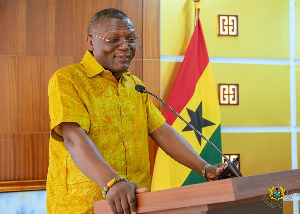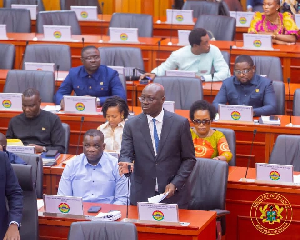Ho, Feb. 8, GNA- The Volta Region has become the latest of five regions in the country to be brought on board the United Nation Fund for Population Activities (UNFPA's) decentralized developmental intervention strategy in the country.
Between now and 2010 the Fund would provide support in implementing gender and health related activities and projects in the region. Mr Makane Kane, UNFPA Ghana Representative announced the plan when he led a team of UNFPA Directors from NewYork and West Africa on a field visit to Ho and held a forum with heads of departments and agencies in the region.
He said the Fund is currently in the three Northern and the Central regions for the same purpose.
He said the involvement of the Fund's West Africa representatives on the visit stemmed from the need to work together, share experiences and attain collaborative results because of the borderless nature of population and gender related problems in the sub-region. Mr Emmanuel Tofoatsi Assistant Representative in the Ghana Office of the Fund said positive outcomes of the Fund's involvement in the Volta Region would provide useful lessons for replication in other parts of the country, given the diversities of the problems in the region reflecting what pertains countrywide.
He appealed to the various agencies, departments and non-governmental organizations in the region to pull their boot-straps and assist the Fund's involvement in the region worthwhile.
In his remarks, Mr Mawutor Goh, Ho Municipal Chief Executive expressed delight at the UNFPA's decision to decentralize its activities into the region and the direct benefits it would derive from the decision. He was hopeful that the region would be the "laboratory" from which results would emerge for solving population and health related problems in the country.
The Heads of Departments, among others called for the strengthening of public education to raise the awareness of the populace, especially those in the rural areas on issues the Fund would be addressing. It was also suggested that women engaged in farming in the region be protected against the hazards they faced.
Regional News of Thursday, 8 February 2007
Source: GNA
UNFPA to focus on Volta Region
Entertainment











